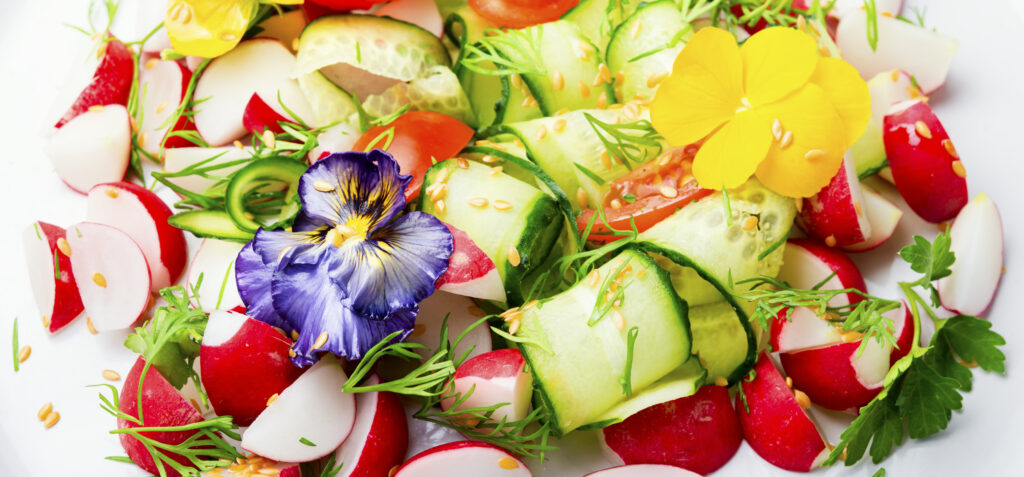Discover how incorporating alkaline foods into your diet can help support your body’s natural pH balance and promote overall health. While our bodies maintain strict pH regulation, choosing alkaline-forming foods can benefit energy, digestion, and well-being.
Understanding Alkaline Foods
These foods can help:
- Support mineral balance
- Enhance energy levels
- Improve digestion
- Reduce inflammation
- Promote vitality
Top Alkaline Foods to Include
1. Leafy Greens
Nature’s alkaline powerhouses:
- Spinach
- Kale
- Swiss chard
- Collard greens
- Watercress
2. Alkaline Vegetables
Daily essentials:
- Cucumber
- Celery
- Bell peppers
- Broccoli
- Asparagus

3. Alkaline Fruits
Sweet options:
- Lemons
- Limes
- Avocados
- Watermelon
- Coconut
4. Alkaline Herbs
Flavorful additions:
- Parsley
- Cilantro
- Basil
- Mint
- Ginger
Meal Planning with Alkaline Foods
Breakfast Ideas
Start your day right:
- Green smoothies
- Chia puddings
- Avocado toast
- Herb omelets
- Quinoa bowls
Lunch Options
Midday nutrition:
- Mixed salads
- Vegetable soups
- Buddha bowls
- Wrap alternatives
- Sprouted grains
Dinner Suggestions
Evening meals:
- Steamed vegetables
- Quinoa dishes
- Legume-based meals
- Fresh herb sauces
- Root vegetables
Preparation Methods
Raw Preparation
Preserve nutrients:
- Fresh salads
- Green juices
- Sprouts
- Fermented foods
- Cold soups
Cooking Techniques
Gentle methods:
- Steaming
- Light sautéing
- Raw marinating
- Dehydrating
- Quick blanching
Combining Alkaline Foods
Food Pairing
Optimal combinations:
- Green + grain
- Fruit + herb
- Vegetable + protein
- Sprout + salad
- Root + leafy
Portion Guidelines
Balance your plate:
- 70% alkaline foods
- 30% other foods
- Proper hydration
- Meal timing
- Serving sizes
Shopping and Storage
Shopping Tips
Select quality:
- Seasonal produce
- Local options
- Organic when possible
- Fresh herbs
- Proper ripeness
Storage Methods
Maintain freshness:
- Proper containers
- Temperature control
- Moisture balance
- Air circulation
- Rotation system
Integration Strategies
Gradual Implementation
Start with:
- Morning additions
- Simple swaps
- Small changes
- Regular inclusion
- Consistent progress
Sustainable Practices
Long-term success:
- Meal planning
- Prep routines
- Storage systems
- Recipe rotation
- Shopping schedules
Common Questions
Addressing Concerns
Understanding:
- Protein sources
- Calcium intake
- Energy levels
- Cost management
- Time efficiency
Success Tips
Key strategies:
- Preparation planning
- Variety inclusion
- Balance maintenance
- Quality focus
- Regular assessment

